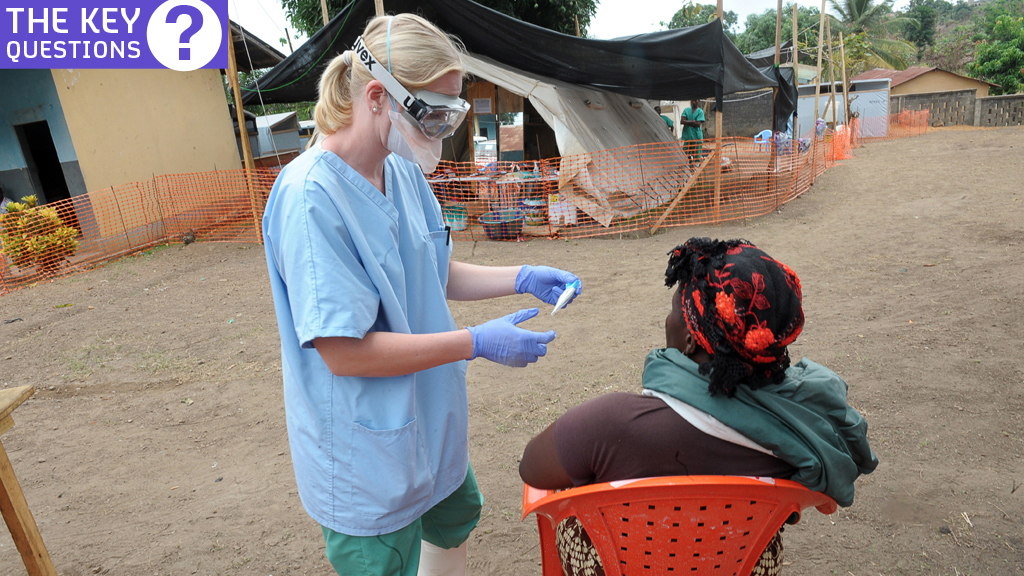Ebola outbreak in west Africa – the key questions
An outbreak of Ebola has killed more than 670 people across Guinea, Liberia, Nigeria and Sierra Leone. So what do we need to know about this highly contagious virus?

What is Ebola?
“Ebola” is Ebola virus disease caused by a virus in the filoviridae family of viruses, which first cropped up in the Democratic Republic of the Congo and Sudan in 1976, says Professor Richard Elliot, Jarrett Chair of Infectious Diseases at the Centre for Virus Research at the University of Glasgow. “It causes a severe, often fatal, disease in humans. Symptoms include bleeding, diarrhoea, fever, vomiting and weakness.”
How do you catch it?
“The original infection will be from contact with a wild animal, such as the fruit bat, which is then spread in the human population by human-to-human transmission in infected bodily fluids: blood, vomit, and diarrhoea,” says Professor Elliot.
How dangerous is it?
“Even if we stopped the transmission of Ebola today, we’d expected around 200-250 of those people currently infected to die,” says Dr Ben Neuman, a virologist at the University of Reading. “It will probably take another two months until this outbreak is over because it takes about a month from contracting the virus to dying from it, and I imagine there will be two more cycles.”
“Some strains have caused outbreaks with 90 per cent fatality, while other strains have lower fatality rates,” adds Professor Elliot. “There is currently no known cure.”
Will it come to the UK?
“It could come to the UK in an infected-patient before symptoms arise, which could take up to three weeks,” says Professor Elliot.
“I’m sure it will come to the UK – perhaps not in this outbreak, however. In the UK, there’s usually one case of the Lassa virus [which causes a type of viral haemorrhagic fever, common in West Africa] a year, but it gets locked down before it can spread.”
How do you reduce the chances of getting Ebola?
“Good barrier nursing precautions (such as, gloves, masks, goggles, gowns), disinfection of contaminated surfaces, avoidance of contact with infected bodily fluids or organs, for example during burial rituals,” says Professor Elliot.
-
Latest news
-
As India goes to the polls in the world’s largest election – what do British-Indians think?6m

-
Tees Valley: Meet the candidates in one of the biggest contests coming up in May’s local elections4m

-
Keir Starmer says public sector reform will be a struggle7m

-
Nicola Sturgeon’s husband Peter Murrell charged with embezzlement of funds from SNP1m

-
Ukraine might finally get $60billion in American weapons and assistance to defend against Russia3m

-




